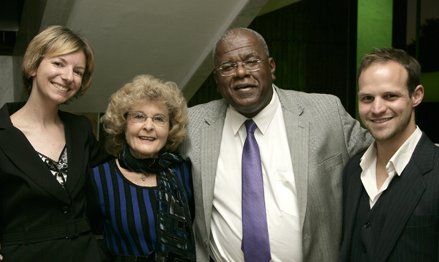Latest News Archive
Please select Category, Year, and then Month to display items
16 February 2024
|
Story ANTHONY MTHEMBU
|
Photo ROSINA MOTHIBA
 Prof Matseliso Mokhele-Makgalwa: Vice Dean; Research, Engagement and Internationalisation in the Faculty of Education at the University of the Free State (UFS).
Prof Matseliso Mokhele-Makgalwa: Vice Dean; Research, Engagement and Internationalisation in the Faculty of Education at the University of the Free State (UFS).
The Faculty of Education at the University of the Free State (UFS) proudly announces the appointment of Prof Matseliso Mokhele-Makgalwa as Vice Dean of Research, Engagement and Internationalisation, effective 1 January 2024. With a wealth of experience and a fervent dedication to academic advancement, Prof Mokhele-Makgalwa’s appointment marks a significant stride towards enhancing the faculty’s global presence and academic prowess.
Transitioning into a new role
Transitioning seamlessly from her previous role as Acting Vice Dean of Research and Postgraduate Studies, Prof Mokhele-Makgalwa perceives this new appointment as a natural progression, elevating her responsibilities to spearhead research endeavours, foster engagement, and cultivate international partnerships within the faculty. Embracing this pivotal role with enthusiasm, she underscores the importance of collaborative efforts among faculty members, securing research funding, and ensuring the quality and impact of scholarly outputs.
“I appreciate the opportunity to contribute significantly to the faculty’s research, engagement and internalisation efforts,” says Prof Mokhele-Makgalwa. “I look forward to collaborating with the faculty staff members to advance our academic initiatives on a broader scale.”
A vision of progression for the faculty
At the heart of her vision lies a commitment to realise the UFS’s Vision130, wherein Prof Mokhele-Makgalwa aims to elevate the international profile of the faculty, foster impactful research, promote engaged scholarship, and facilitate knowledge exchange on a global scale. Her strategic objectives also include positioning the faculty among the top three education schools nationally, reflecting her dedication to academic excellence and institutional advancement.
'England, the English and the problem of education in South Africa.’
2013-09-26
|
 |
Attending the lecture were, from the left: Dr Susan Brokensha, Senior Lecturer: Department of English; Prof Rosemary Gray, Professor Emeritus (Honorary Life Vice-President of the English Academy of Southern Africa); Prof Jonathan Jansen; and Dr Thinus Conradie, Lecturer: Department of English.
Photo: Johan Roux
26 September 2013 |
Prof Jonathan Jansen: Lecture
The university celebrated the life of one of South Africa's most renowned art critics, hosting the 2013 English Academy’s Percy Baneshik Memorial Lecture on the Bloemfontein Campus.
The keynote lecture was delivered by Prof Jonathan Jansen, Vice-Chancellor and Rector, who joined a distinguished list of speakers to have delivered the lecture. Presented annually by the English Academy of Southern Africa, an association dedicated to promoting the effective use of English as a dynamic language in Southern Africa, past speakers include Prof Es’kia Mphahlele, Prof Njabulo Ndebele, Dr Alan Paton and Prof Albie Sachs. The lecture is hosted at venues across the country and this year Bloemfontein paid tribute to Percy Baneshik.
In his speech Not even colonial born: England, the English and the problem of education in South Africa,' Prof Jansen addressed the dilemma of the politics of language in both school and university education today.
Talking about the dominance of English in schools, Prof Jansen said it is the language of choice because indigenous languages are so poorly taught. "Simply learning in your mother tongue is absolutely no guarantee of improved learning gains in school. The problem is not the language of instruction; it is the quality of teaching, the knowledge of curriculum and the stability of the school."
Prof Jansen told the audience in the CR Swart Hall that Afrikaans-exclusive, or even Afrikaans-dominant white schools represent a serious threat to race relations in South Africa. "You simply cannot prepare young people for dealing with the scars of our violent past without creating optimal opportunities in the educational environment for living and learning together."